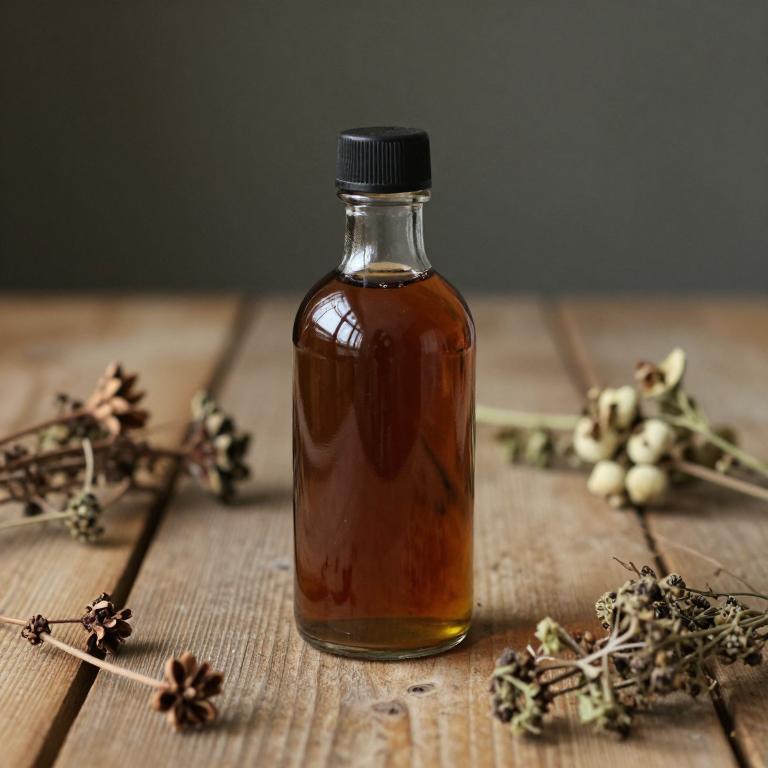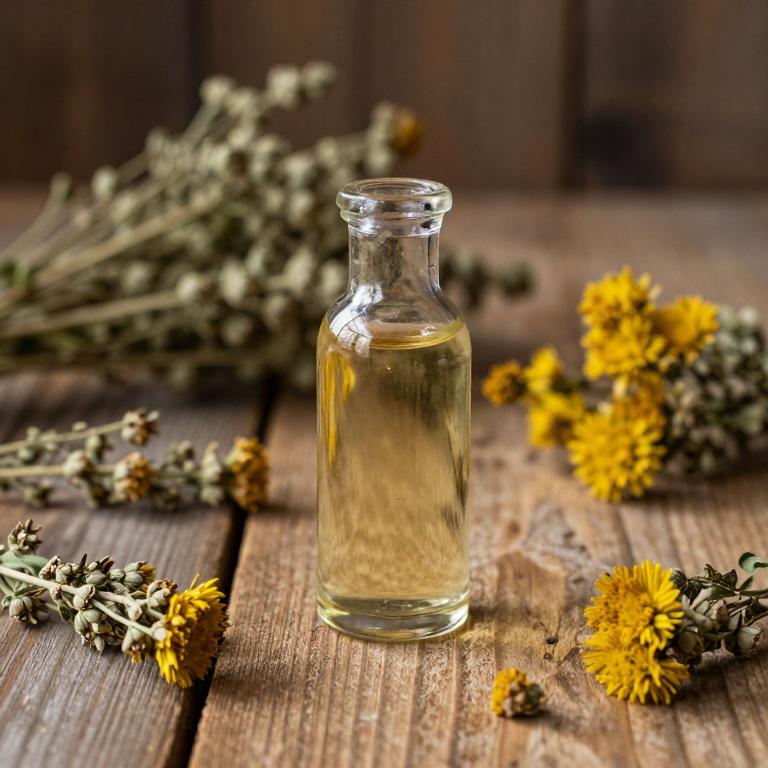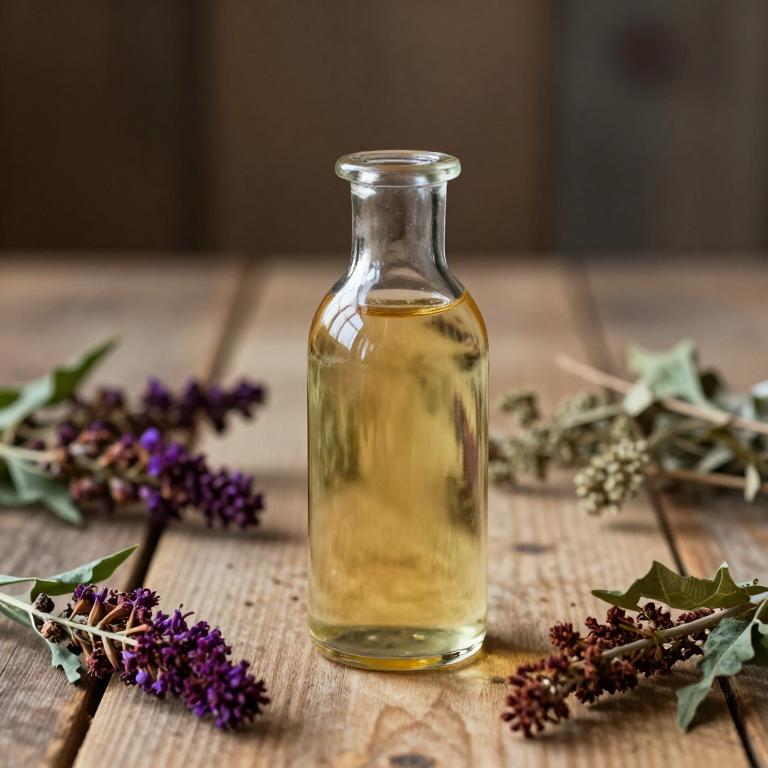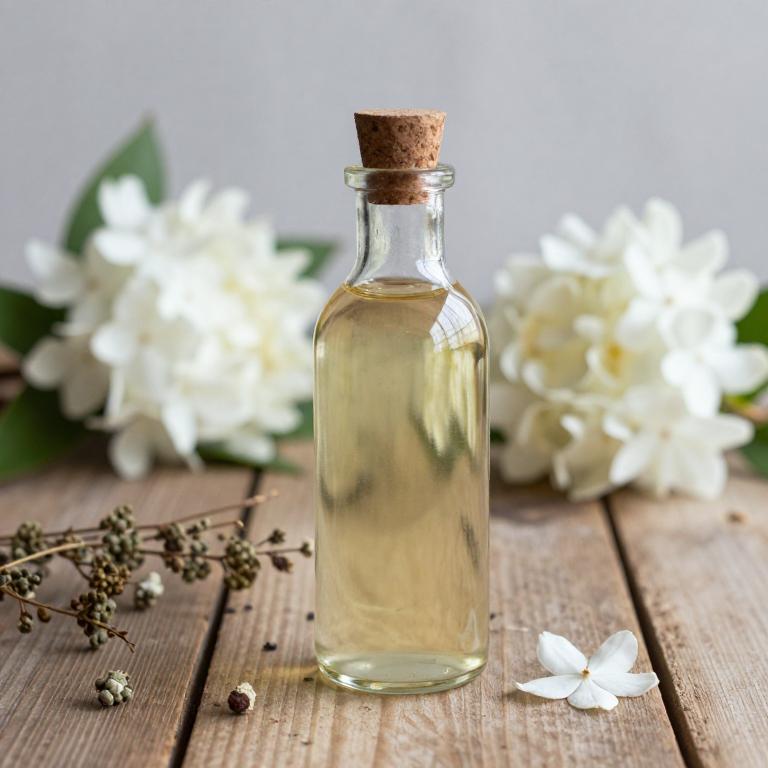10 Best Herbal Syrups For Amenorrhea

Herbal syrups have been traditionally used to address amenorrhea, a condition characterized by the absence of menstrual periods, by promoting hormonal balance and uterine health.
Commonly used herbs in these syrups include chasteberry (Vitex agnus-castus), which is believed to regulate menstrual cycles by influencing prolactin and luteinizing hormone levels. Other ingredients such as dong quai, ginger, and black cohosh are often included for their purported effects on blood circulation and hormonal support. These syrups are typically prepared with honey or maple syrup as a base, making them palatable and easy to consume.
While some studies suggest potential benefits, it is important to consult a healthcare provider before using herbal syrups, as they may interact with other medications or have side effects.
Table of Contents
- 1. Chaste tree (Vitex agnus-castus)
- 2. Black cohosh (Cimicifuga racemosa)
- 3. Heartworts (Leonurus cardiaca)
- 4. Stinging nettle (Urtica dioica)
- 5. Dog rose (Rosa canina)
- 6. Sanguisorba (Sanguisorba officinalis)
- 7. Thistle (Silybum marianum)
- 8. Blessed thistle (Cnicus benedictus)
- 9. Fennel (Foeniculum vulgare)
- 10. White water lily (Nymphaea alba)
1. Chaste tree (Vitex agnus-castus)

Vitex agnus-castus, commonly known as chaste tree berry, has been traditionally used in herbal medicine to support hormonal balance, particularly in women's health.
Herbal syrups made from vitex are often used to address amenorrhea, or the absence of menstrual periods, by potentially regulating the hypothalamic-pituitary-ovarian axis. The active compounds in vitex, such as aucubin and flavonoids, may influence luteinizing hormone (LH) and follicle-stimulating hormone (FSH) levels, which are crucial for menstrual cycle regulation. While some studies suggest that vitex may help induce menstruation in cases of functional hypothalamic amenorrhea, more clinical research is needed to confirm its efficacy and safety.
As with any herbal remedy, it is important to consult a healthcare provider before use, especially for women with underlying medical conditions or those taking other medications.
2. Black cohosh (Cimicifuga racemosa)

Cimicifuga racemosa, commonly known as black cohosh, has been traditionally used in herbal medicine to address menstrual irregularities, including amenorrhea.
Herbal syrups containing Cimicifuga racemosa are often prepared from the root of the plant and are believed to support hormonal balance in women. These syrups may help regulate menstrual cycles by influencing estrogen-like activity in the body. However, they should be used with caution, as they may interact with other medications and are not recommended for prolonged use without medical supervision.
While some studies suggest potential benefits, more research is needed to fully understand their efficacy and safety for treating amenorrhea.
3. Heartworts (Leonurus cardiaca)

Leonurus cardiaca, commonly known as heartwarming or redweed, has been traditionally used in herbal medicine to address menstrual irregularities, including amenorrhea.
Herbal syrups made from Leonurus cardiaca are believed to stimulate uterine function and promote menstrual flow by enhancing blood circulation and hormonal balance. These syrups are often prepared by combining the dried leaves and flowers of the plant with honey or other natural sweeteners to create a palatable and effective remedy. While some studies suggest potential benefits, more rigorous clinical research is needed to confirm their efficacy and safety for treating amenorrhea.
As with any herbal treatment, it is advisable to consult a qualified healthcare practitioner before use, especially for individuals with existing medical conditions or those taking other medications.
4. Stinging nettle (Urtica dioica)

Urtica dioica, commonly known as stinging nettle, has been traditionally used in herbal medicine for its potential health benefits, including its possible role in managing amenorrhea, which is the absence of menstrual periods.
Herbal syrups made from Urtica dioica are believed to support hormonal balance and improve uterine function, which may help regulate menstrual cycles. These syrups are often prepared by combining the fresh or dried leaves of the plant with honey or other natural sweeteners to create a palatable form for consumption. While some anecdotal evidence and traditional practices suggest their efficacy, scientific research on Urtica dioica for amenorrhea is limited, and it is advisable to consult a healthcare provider before use.
As with any herbal remedy, individual responses may vary, and it should be used as part of a holistic approach to women's health.
5. Dog rose (Rosa canina)

Rosa canina, commonly known as dog rose, has been traditionally used in herbal medicine for its potential benefits in regulating menstrual cycles.
Rosa canina herbal syrups are often formulated with other herbs to support hormonal balance and may help alleviate symptoms associated with amenorrhea, which is the absence of menstruation. These syrups are typically made from the hips of the Rosa canina plant, which are rich in vitamin C, antioxidants, and other bioactive compounds. While some studies suggest that Rosa canina may improve uterine health and promote regular menstrual flow, more clinical research is needed to confirm its efficacy for amenorrhea.
As with any herbal remedy, it is advisable to consult a healthcare professional before use, especially for individuals with underlying health conditions or those taking other medications.
6. Sanguisorba (Sanguisorba officinalis)

Sanguisorba officinalis, commonly known as sweet senna, has been traditionally used in herbal medicine for its potential benefits in treating amenorrhea, or the absence of menstruation.
The plant contains various bioactive compounds, including flavonoids and mucilage, which may help regulate hormonal balance and support uterine health. Herbal syrups made from Sanguisorba officinalis are often prepared by combining the dried roots with honey or other sweeteners to enhance palatability and absorption. While some studies suggest that sanguisorba may help stimulate menstrual flow, it is important to consult a healthcare professional before using it, especially for individuals with underlying health conditions or those taking other medications.
As with any herbal remedy, the effectiveness and safety of sanguisorba officinalis syrups can vary, and more research is needed to fully understand its role in managing amenorrhea.
7. Thistle (Silybum marianum)

Silybum marianum, commonly known as milk thistle, is traditionally used in herbal medicine for its potential liver-protective properties.
While it is not a direct treatment for amenorrhea, some herbal syrups containing silybum marianum may be used alongside other remedies to support hormonal balance and overall reproductive health. These syrups are often marketed for their antioxidant and anti-inflammatory benefits, which may indirectly support menstrual regularity. However, scientific evidence specifically linking silybum marianum to the treatment of amenorrhea is limited, and its efficacy in this context remains largely anecdotal.
It is important to consult a healthcare provider before using any herbal remedies, especially for conditions like amenorrhea, to ensure safety and appropriate treatment.
8. Blessed thistle (Cnicus benedictus)

Cnicus benedictus, commonly known as St. Benedict's herb, has been traditionally used in herbal medicine to address various gynecological conditions, including amenorrhea.
Its active compounds, such as flavonoids and essential oils, are believed to stimulate uterine function and regulate hormonal imbalances that may contribute to the absence of menstruation. Herbal syrups made from Cnicus benedictus are often prepared by combining the dried leaves and flowers with honey or other natural sweeteners to enhance palatability and bioavailability. These syrups are typically recommended for women experiencing irregular or absent menstrual cycles due to stress, hormonal fluctuations, or lifestyle factors.
While some studies suggest potential benefits, it is important to consult with a healthcare provider before using Cnicus benedictus to ensure safety and appropriateness for individual health conditions.
9. Fennel (Foeniculum vulgare)

Foeniculum vulgare, commonly known as fennel, has been traditionally used in herbal medicine for various health purposes, including the treatment of amenorrhea, which is the absence of menstrual periods.
Fennel contains phytoestrogens and essential oils that may help regulate hormonal imbalances, potentially supporting menstrual regularity. Herbal syrups made from fennel are often prepared by steeping the dried seeds in alcohol or water, creating a concentrated form that is easy to consume. These syrups are believed to stimulate uterine function and improve blood flow to the reproductive organs, which may aid in restoring normal menstrual cycles.
However, it is important to consult a healthcare provider before using fennel syrups, especially for women with existing medical conditions or those taking medications.
10. White water lily (Nymphaea alba)

Nymphaea alba, commonly known as white water lily, has been traditionally used in herbal medicine for its potential benefits in treating amenorrhea, or the absence of menstrual periods.
The herbal syrup derived from its roots and flowers is believed to support hormonal balance and uterine health, which may help regulate menstrual cycles. In traditional systems like Ayurveda and Chinese medicine, Nymphaea alba is valued for its cooling and nourishing properties that may aid in addressing menstrual irregularities. While scientific research on its efficacy for amenorrhea is limited, many practitioners recommend it as a natural remedy when used in conjunction with other holistic approaches.
It is important to consult a healthcare provider before using Nymphaea alba herbal syrup, especially for individuals with pre-existing health conditions or those taking other medications.